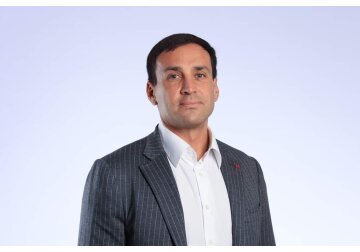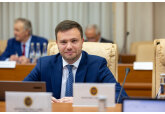
In Moldova, for genuine economic development, the state must withdraw from the economic processes in which it participates through its enterprises, leaving these areas to develop according to the rules of the market economy - Dmitri Torner
This opinion was expressed by an economic expert, noting that the state should not be a participant in economic activity, but an arbitrator who sets the rules of the game and monitors their strict observance, and as a result, both business and the state will win. He drew attention to the fact that for more than three decades of independence, our state has not yet decided who it wants to be: an active player or an arbitrator in the ongoing economic processes, and this is a big problem, since until the state clearly defines its place and role in this matter, it is impossible to talk about the genuine development of the economy and the country as a whole. Dmitri Torner recalled that the large-scale process of denationalization (limiting state intervention), which began almost immediately after the collapse of the USSR, has not been completed to this day. As a result, more than 100 enterprises remain in state ownership, some of which have become a real burden and are unprofitable. The state owns property in a wide range of economic activities - from sanatoriums and health resorts to printing houses and printing plants. According to the economic expert, in a normal situation, only strategic enterprises should remain state-owned, such as, for example, the Moldovan Railways or the airspace management company MOLDATSA. As for the rest, the state should leave the markets that can harmoniously develop in accordance with the rules of the market economy. Dmitri Torner explained that while the state is actively involved in the wine market, the metal or bakery market or other markets, we can talk about unhealthy, perhaps even unfair, competition, into which the state itself drives economic operators, preventing them from developing. And ultimately, the state only loses, since the natural development of the business environment will provide more taxes and fees to the budget. The economic expert believes that today a large-scale assessment of all state enterprises and enterprises with state capital is needed, as well as a broad assessment of lands in state ownership. As a result of this assessment, a number of important decisions will have to be made: which strategic enterprises will remain in state ownership, which enterprises will be privatized, transferred to concession, and which ones need to be liquidated as ballast that needs to be gotten rid of. Dmitri Torner agreed that now is not the best time to attract investors who could privatize or take on concession certain enterprises, but things are moving forward little by little, and he is confident that next year there will be preconditions that will allow us to talk about attracting potential investors more specifically, but until then, "we need to do our homework."// 21.11.2024 — InfoMarket







